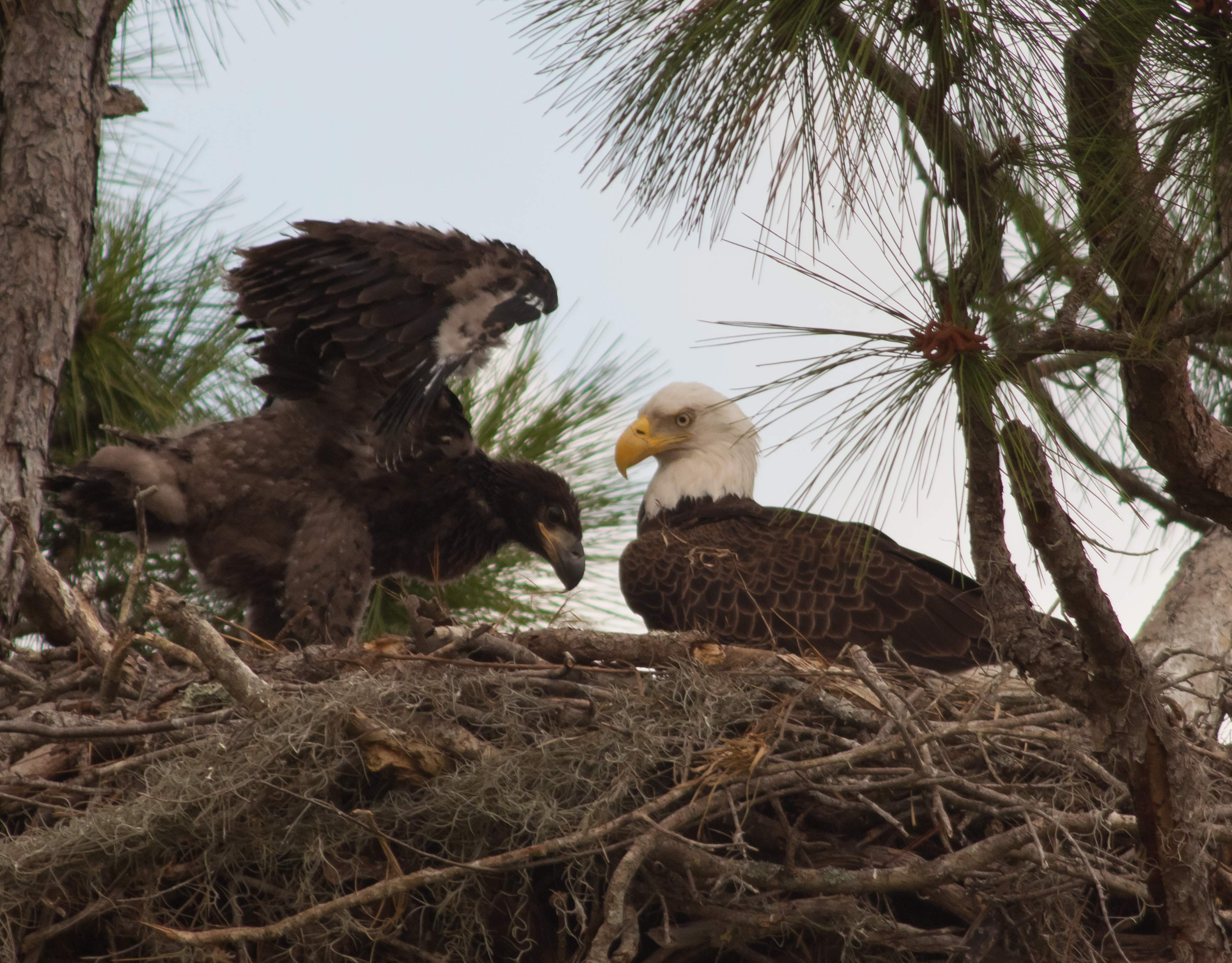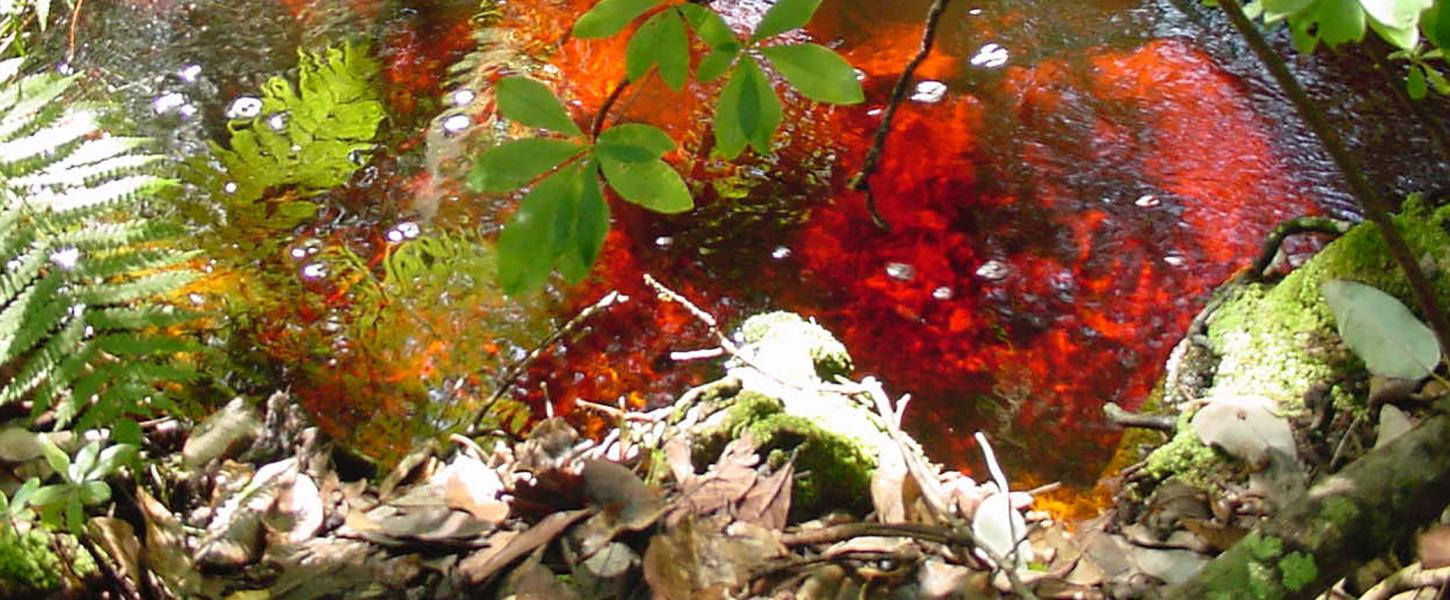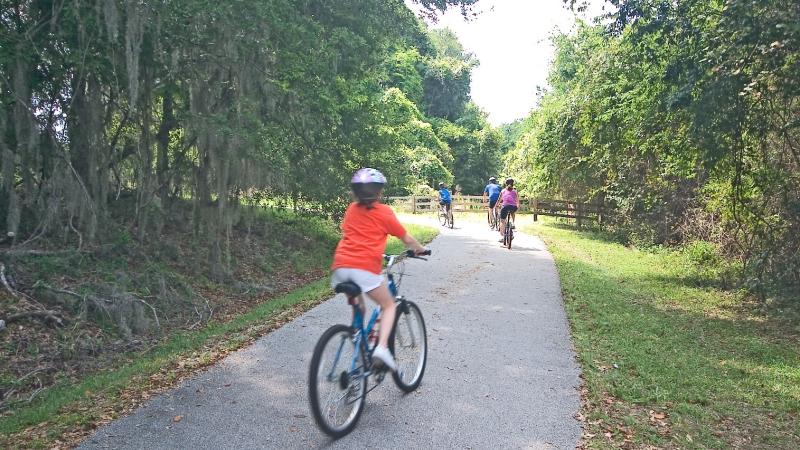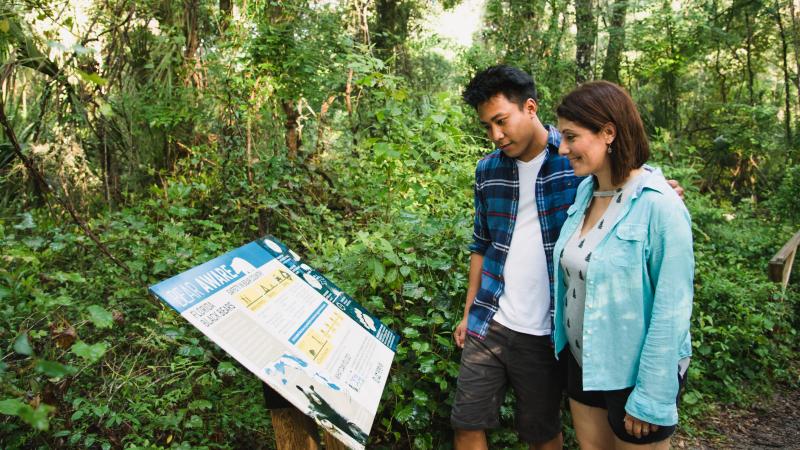
Exploring Lake June

Visitors to Lake June-in-Winter Scrub State Park have the unique opportunity to explore one of Florida’s oldest and most intriguing habitats, which is also one of the state’s most endangered natural communities. Lake June is composed predominantly of scrub and scrubby flatwoods with pockets of pine flatwoods, areas of baygall, and seepage streams.
Visitors are likely to observe Florida scrub-jays happily flying about as they explore the park. A picnic pavilion at the top of a gently sloped rise overlooks the lake. In addition to the brilliant blue Florida scrub-jay, bald eagles, ospreys, owls, woodpeckers and the rare short-tailed hawk may be sighted.
Sharp-eyed hikers who take on the challenge of walking down the sugar -sand fire lane may observe the gopher tortoise, scrub lizards, endemic scrub plants, and a number of animal tracks that have not been washed away by summer rains. Black bear may amble from the wooded areas into the clearing, and bobcat and the endangered Florida panther are occasionally seen.
The Tomoka Trail, a loop trail which runs through scrub and scrubby flatwoods, is less than half a mile. The trail crosses a gurgling stream, and those on a leisurely walk may be surprised and delighted to encounter a playful otter. Avid birders will want to walk down to the edge of the lake and scout the shoreline for water birds. The park does not have a canoe launch, but paddling enthusiasts can easily take a lightweight kayak to the water’s edge.

During the winter season, Lake June volunteers hosts guided walks for groups and organizations. Please call the park ahead of time to find out about the tour schedule.
Water, a hat, sunglasses, hiking boots and protective clothing are essential as there is very little shade in scrub, and walking in sugar sand can be difficult. Visitors are further advised to carry a cellphone as a precaution.
- Lake June is managed by Highlands Hammock State Park.
- Highlands Hammock may be reached by calling 863-386-6094.
- Directions to Lake June may be obtained at the ranger station.
- The cost is $2 per vehicle and exact change is required for payment in an Iron Ranger deposit box.
- Fees are waived for campers with valid vehicle ID tags.


